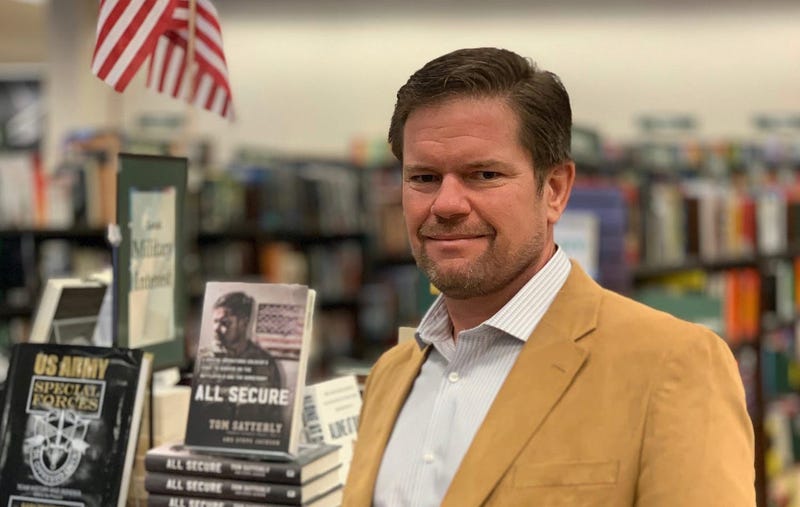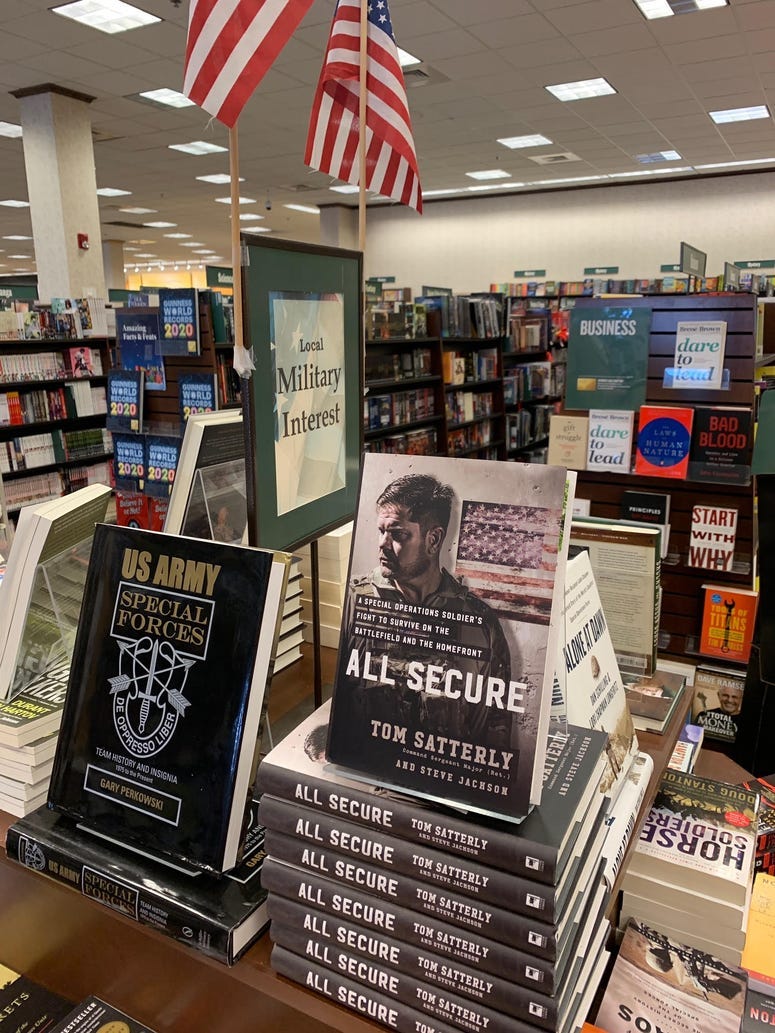
Retired Command Sgt. Maj. Tom Satterly served in America's most elite units and was battle-tested in combat against the enemies of our country. However, there was a price to be paid.
Satterly has emerged from the shadowy world of Special Operations and clandestine missions to take on a new mission: helping those afflicted with post-traumatic stress. For Satterly, the depression and pain were so much that he almost took his own life. His new book "All Secure: A Special Operations Soldier's Fight to Survive on the Battlefield and the Homefront" details his journey to war and back. It is a story he hopes will help and inspire others. Connecting Vets caught up with him for a few questions.
What brought you into the military initially, and what inspired you to serve in some of America's most elite units?
Initially, I decided to join for college money. Four years in and out then onto college. As I was exposed to higher-level training while stationed in Germany like French Commando School, German Ranger School, and Platoon Confidence training, I knew there was something more than just the minimums in life. I wanted to help those oppressed and bullied like I was as a child and the appeal was too strong not to chase those types of people around the world with the best soldiers possible.
Today your book "All Secure" is released. What is in store for readers when they pick it up?
I fully believe that my readers will be shocked at my openness to the struggles that I faced and continue to face. We approached the book as an open and honest assessment of how I got as low as I was and the journey we had to take as I climbed my way out. This book is not just for veterans or active-duty soldiers, sailors, airmen, or Marines, it is for anyone who is struggling in life and trying to deal with the stresses of every day living
Your book talks a lot about trauma. Would you be okay with describing a few incidents that you experienced during the course of your military service that had a lasting impact on you?
One was on 4 October 1993 [referencing Operation Gothic Serpent, made famous by the film Blackhawk Down] when I finally made it back to the hanger and was driving up past the hospital across the road. I saw a rocket-propelled grenade sticking out of the side of one of the US bodies that had not detonated yet. He was surrounded with sandbags to protect others in case it detonated. I wondered about who would have to remove it knowing it would be our EOD guy and feeling sorry for both the victim and him for having to remove it. Never has left my mind. Another was on 6 October just after our memorial for the fallen from our battle three days prior. A mortar round landed in front of our hangar in a group of people killing my friend Matt Rierson. It also wounded our commander and his screams from the pain will haunt me forever. It bound the screams of mothers over their lost sons or husbands that I had to hear all too often after conducting hits on their home and killing them. Bad or not, taking a life of someone affects you no matter what anybody tells you.

When did it become apparent to you that you were suffering with PTS and TBI?
When I nearly ruined my wedding on my wedding day. It was fully apparent that I couldn’t manage it any longer after my actions that evening. Something I’ll never be able to forget or fix but also saved my life as I needed to hit bottom to realize I was lost to the depression and anger that had consumed me. The full story is actually in the book. Hard to write and admit, but hopefully, it helps others
What steps were the most helpful for you in beginning the healing process?
Realizing I was the problem. I had spent so much time covering my pain and anger up that I nearly believed it myself. When I stopped blaming others for my misery and started to blame myself, I was then able to work on what was wrong. The help of my strong wife who held me accountable and stood by my side was what got me through the toughest times of my life. Awareness is key in battling PTS and when I became aware of my triggers I learned how to manage them before they were problems.
We speak to everyone on the biological reasons they feel and behave the way they do. PTS is not an excuse for poor behavior. You can change it and it’s not your fault. We tell them all that admitting to needing help is not a sign of weakness, but really a sign of strength. I wish I had known that what I was feeling was normal and that I wasn't weird or weak. I refrained from talking about my issues for fear of losing my job. No one ever said that to us, we just assumed it. I wish the stigma many have about asking for help or PTS was not so prevalent.
Why did you decide to write a book about your experiences, and was it tough to go back and write in detail about some of those past memories?
And to provide answers and resources for them to get help.
It was very difficult to not only write, but to admit what I was writing. It was extremely difficult to read the book aloud for the audio version as I had to mouth the sadness verbally and that was very difficult. It was also very cathartic as the process continued. It ended up being helpful for me as I hope it is for others.
All Secure is available at major book stores everywhere.
